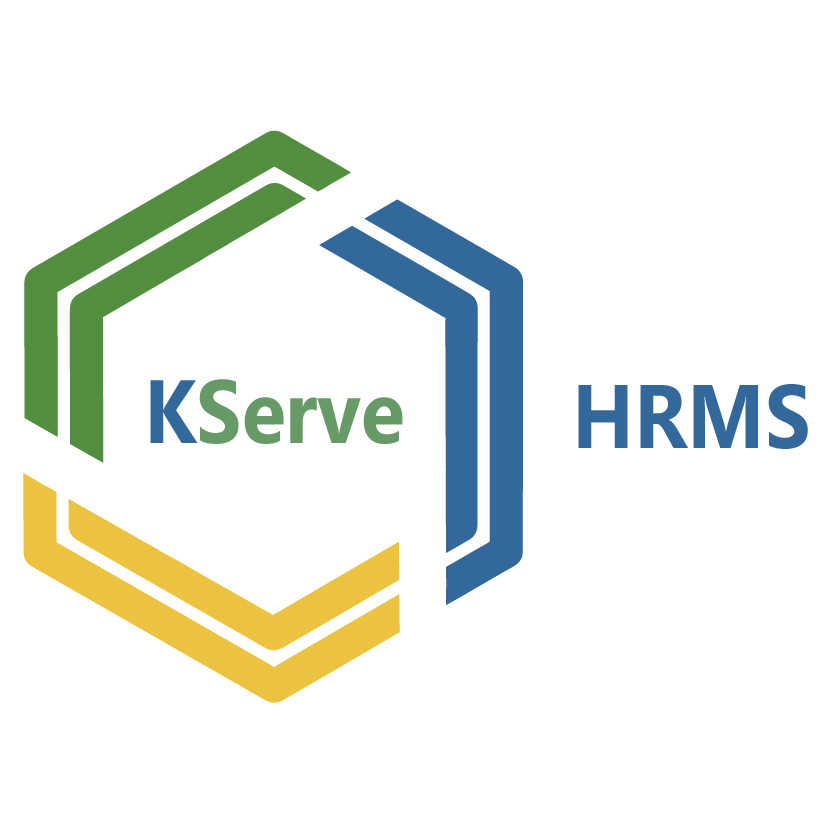Description

Homebase

HRnet
Comprehensive Overview: Homebase vs HRnet
Certainly! Let's dive into a comprehensive overview of Homebase and HRnet, covering their primary functions, target markets, market share, user base, and key differentiating factors.
a) Primary Functions and Target Markets
Homebase
Primary Functions:
- Employee Scheduling: Homebase offers a robust scheduling tool that allows businesses to create and manage employee schedules efficiently.
- Time Tracking: It provides time-tracking solutions, enabling employees to clock in and out seamlessly.
- Team Communication: The platform offers communication tools for announcements and direct messaging.
- Hiring: Features to streamline the hiring process, including job postings and applicant tracking.
- HR Management: Basic HR tools such as onboarding, document storage, and compliance support.
Target Markets:
- Small to Medium Businesses (SMBs): Primarily targets small businesses such as restaurants, retail stores, and other service-oriented industries.
- Local Businesses: Particularly beneficial for local businesses where workforce management can be challenging.
HRnet
Primary Functions:
- Comprehensive HR Suite: HRnet offers a full-fledged HR management platform covering payroll, benefits administration, and employee self-service.
- Employee Data Management: Provides tools for managing employee information and performance reviews.
- Talent Management: Includes features for recruitment, onboarding, learning and development, and succession planning.
- Compliance and Reporting: Tools to ensure legal compliance and generate comprehensive HR reports.
Target Markets:
- Medium to Large Enterprises: Ideal for businesses with more complex HR needs, requiring sophisticated solutions.
- Multi-national Companies: Supports diverse and large organizations managing employees across different regions and countries.
b) Market Share and User Base
While specific market share data continuously changes and may not always be publicly available, we can provide general insights based on each product's positioning:
Homebase
- Market Share: Homebase is a leading tool in the SMB sector for workforce management solutions. It holds a significant share among small businesses that require simple, cost-effective solutions.
- User Base: Has a large base of small business users, particularly in North America, due to its specialization in serving the scheduling and time-tracking needs of businesses with hourly workers.
HRnet
- Market Share: HRnet typically caters to larger organizations, and as such, has a strong presence in the enterprise HR software market. It is less prevalent among small businesses, which often require less comprehensive solutions.
- User Base: Its user base consists primarily of medium to large organizations that value HRnet's ability to handle complex HR processes and large staff numbers efficiently.
c) Key Differentiating Factors
-
Complexity and Depth:
- Homebase is designed for simplicity and ease of use, catering to businesses that need straightforward scheduling and workforce management.
- HRnet provides a more comprehensive suite capable of handling complex HR tasks, making it suitable for organizations with extensive HR requirements.
-
Target Business Size:
- Homebase primarily serves small enterprises with a focus on industries with largely hourly workforces.
- HRnet targets larger businesses with features that support intricate HR operations across diverse geographical locations.
-
Feature Set:
- Homebase excels in scheduling, time tracking, and basic HR functions, with an emphasis on usability for small teams.
- HRnet, on the other hand, offers advanced features such as talent management, performance reviews, and in-depth compliance tools, equipped to handle corporate HR needs.
-
Pricing Model:
- Homebase offers a freemium model that allows small businesses to access basic features at no cost, with premium features available through paid plans.
- HRnet typically follows a tiered pricing structure, likely involving negotiations due to the custom nature of services provided to larger businesses.
In summary, while both Homebase and HRnet provide workforce management solutions, they cater to different business sizes and complexities, with Homebase focusing on simple, effective solutions for small businesses and HRnet serving the comprehensive needs of larger enterprises.
Contact Info

Year founded :
1986
Not Available
Not Available
United States
Not Available

Year founded :
2009
Not Available
Not Available
Australia
http://www.linkedin.com/company/hrnet
Feature Similarity Breakdown: Homebase, HRnet
To provide a feature similarity breakdown for Homebase and HRnet, let's look into the aspects you've requested:
a) Core Features in Common:
-
Employee Scheduling: Both Homebase and HRnet offer robust employee scheduling features. Managers can create, publish, and share schedules with their team members.
-
Time Tracking: Both platforms provide time tracking functionalities that enable employees to clock in and out, track hours worked, and integrate with payroll systems.
-
Team Communication: Built-in communication tools are available in both Homebase and HRnet, allowing team members to communicate through the platform, often using messaging or notifications.
-
Compliance and Reporting: Both systems offer compliance tools to help businesses adhere to labor laws and generate reports regarding attendance, overtime, and shifts.
-
Payroll Integration: Both Homebase and HRnet integrate with various payroll systems, streamlining the process of paying employees accurately and on time.
b) User Interface Comparison:
-
Homebase:
- Design: Homebase tends to emphasize simplicity and ease of use, often appealing to small to medium-sized businesses (SMBs). The interface is generally intuitive, with a focus on visual calendar scheduling and drag-and-drop functionality.
- Navigation: Clear navigation menus and dashboard views allow quick access to different features.
- Mobile Experience: The mobile app is highly rated for ease of use, allowing employees and managers to manage schedules and time tracking from anywhere.
-
HRnet:
- Design: HRnet may offer a more comprehensive interface with additional functionality suited for larger enterprises or companies requiring more customizability.
- Navigation: May not be as streamlined or simple as Homebase due to the breadth of features, but provides a more in-depth approach to HR management.
- Mobile Experience: Likely to support mobile usage with a dedicated app or a responsive mobile webpage, though it may be more feature-dense and detailed than Homebase's interface.
c) Unique Features:
-
Homebase:
- Hiring and Onboarding: Homebase includes features for posting jobs and onboarding new employees, focusing on the full employee lifecycle from hiring to scheduling.
- Built for SMBs: Homebase is specifically tailored to meet the needs of small businesses, with features emphasizing ease of use and quick setup.
-
HRnet:
- Customizable HR Modules: HRnet typically offers more extensive HR functionalities, including modules for performance management, employee self-service, and comprehensive HR analytics.
- Advanced Workforce Management: Better suited for organizations looking for deep workforce management tools, compliance management, and often featuring more advanced customization and integration options.
In conclusion, while Homebase and HRnet share many core features related to scheduling, time tracking, and communication, they differ in terms of user interface design and unique offerings. Homebase focuses on simplicity and ease of use for SMBs, while HRnet provides a broad range of customizable HR modules potentially better suited for larger enterprises or those seeking extensive HR solutions.
Features

Team Communication
Employee Management
Time Tracking and Timesheets
Payroll Management
Easy Employee Scheduling

Not Available
Best Fit Use Cases: Homebase, HRnet
Homebase and HRnet are both human resources tools designed to cater to different aspects of workforce management, but they are suited to different types of businesses and scenarios. Below is an analysis of their best use cases:
Homebase
a) For What Types of Businesses or Projects is Homebase the Best Choice?
- Small to Medium-Sized Businesses (SMBs): Homebase is particularly well-suited for small to medium-sized businesses, especially in the service, retail, and hospitality sectors. These businesses typically have hourly employees and require robust scheduling, time tracking, and labor cost management.
- Retail & Hospitality: Homebase excels in environments where scheduling flexibility and turnover management are crucial. Its features like shift swapping, time-off requests, and real-time communication tools make it ideal for restaurants, coffee shops, retail stores, and similar businesses.
- Startups and Growing Companies: Businesses that are in the early stages and need easy-to-use, affordable HR solutions to manage their growing teams would benefit significantly from Homebase's user-friendly interface and essential HR functionalities without the complexity of larger systems.
b) How Homebase Caters to Different Industry Verticals or Company Sizes:
- Industry-Specific Features: Homebase includes industry-specific functionalities such as tip management for hospitality and integrations with POS systems for retail, providing seamless operations tailored to the needs of specific verticals.
- Scalability for Small Companies: While more suitable for small to medium businesses, Homebase can scale with a business as it grows, though very large enterprises might find it lacks some of the more advanced features.
HRnet
b) In What Scenarios Would HRnet be the Preferred Option?
- Large Enterprises: HRnet is generally preferred by larger enterprises that require comprehensive HR management solutions including payroll, performance management, and advanced reporting capabilities.
- Multinational Organizations: Enterprises with operations across multiple locations or countries might find HRnet advantageous due to its ability to handle complex organizational structures and diverse compliance requirements internationally.
- Industries with Rigorous Compliance Needs: Industries like healthcare, finance, and manufacturing, which often have stringent compliance and regulatory requirements, might prefer HRnet for its robust compliance management features.
d) How HRnet Caters to Different Industry Verticals or Company Sizes:
- Comprehensive HR Management: HRnet provides a full suite of HR functionalities, from talent acquisition and onboarding to performance management and succession planning, making it suitable for industries that require detailed and integrated HR processes.
- Customization and Integration: HRnet offers high levels of customization and can integrate with other enterprise systems such as ERP and CRM platforms, which is essential for large companies with complex existing infrastructures.
In conclusion, the choice between Homebase and HRnet largely depends on the size, complexity, and specific needs of a business. Homebase is ideal for small to medium-sized service-oriented businesses looking for uncomplicated, user-friendly solutions. In contrast, HRnet is tailored towards larger enterprises requiring comprehensive, scalable, and customizable HR functionalities.
Pricing

Pricing Not Available

Pricing Not Available
Metrics History
Metrics History
Comparing teamSize across companies
Conclusion & Final Verdict: Homebase vs HRnet
When comparing Homebase and HRnet, it's essential to consider the specific needs and priorities of a business to determine which product offers the best overall value. Both offer unique features and advantages, so the decision largely depends on the context in which they will be used.
Conclusion and Final Verdict
a) Best Overall Value:
- Homebase: Generally provides the best overall value for small to medium-sized businesses, especially those in retail, hospitality, and services sectors. Its primary strengths lie in staff scheduling and time tracking with an easy-to-use interface and a free tier that accommodates basic needs.
- HRnet: Offers more comprehensive HR solutions suited for larger companies that require robust features for human resource management, including payroll, benefits administration, and compliance management.
b) Pros and Cons:
Homebase:
- Pros:
- User-friendly and intuitive design.
- Effective for businesses with simple scheduling and time-tracking needs.
- Free tier suitable for small teams or companies.
- Provides additional functionalities like team communication and hiring tools.
- Cons:
- Limited HR features compared to more comprehensive HR systems.
- May not scale well with larger businesses needing complex HR solutions.
HRnet:
- Pros:
- Comprehensive HR capabilities including payroll, benefits, and compliance.
- Suitable for larger organizations with complex HR needs.
- Customizable features to meet specific business processes.
- Cons:
- Can be more expensive with higher-tier features.
- Steeper learning curve due to its extensive functionalities.
- May offer more than necessary for smaller businesses looking at only scheduling and basic HR functions.
c) Recommendations:
-
Consider Your Business Size and Needs:
- For small to medium-sized businesses primarily seeking efficient staff scheduling and time-tracking solutions, Homebase is likely the most cost-effective and user-friendly option.
- For larger enterprises or those needing a full-suite HR solution, HRnet is more likely to meet such requirements effectively.
-
Evaluate Budget and Growth Potential:
- If your business anticipates rapid growth or scaling, investing in HRnet may offer long-term advantages due to its scalability and comprehensive HR functionalities.
- For those on a tight budget or who prioritize cost-efficiency, starting with Homebase and scaling later may be a wise option.
-
Trial and Assess Needs:
- Utilize free trials or demos offered by both platforms to assess how their features meet your specific needs and how they integrate with your existing processes.
-
Consider Integration Needs:
- Ensure the chosen platform can integrate with systems your business currently uses or plans to implement in the future.
Ultimately, the decision between Homebase and HRnet should align with your business's present requirements and future growth plans. Each offers a distinct set of advantages, and understanding the specific needs of your organization will guide you to the most appropriate choice.
Add to compare
Add similar companies




